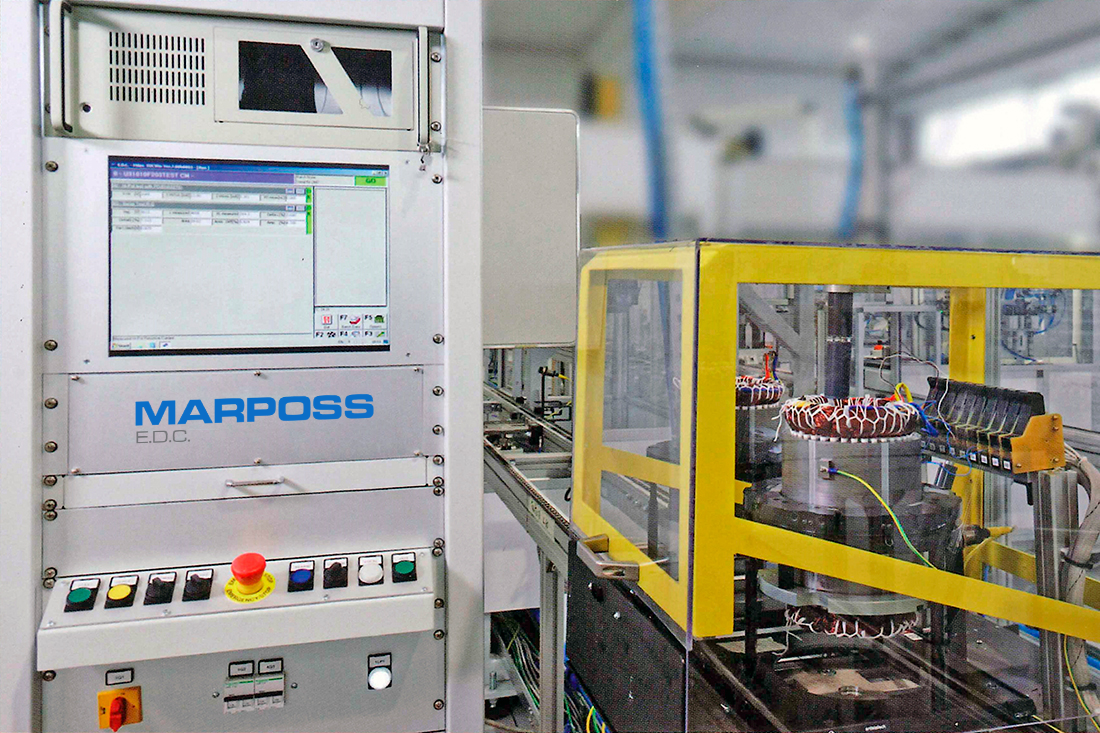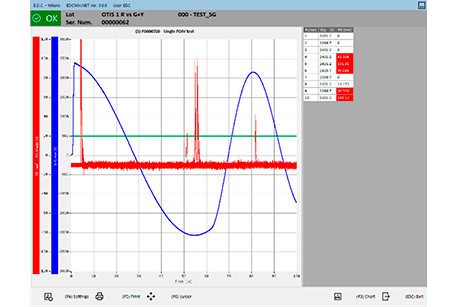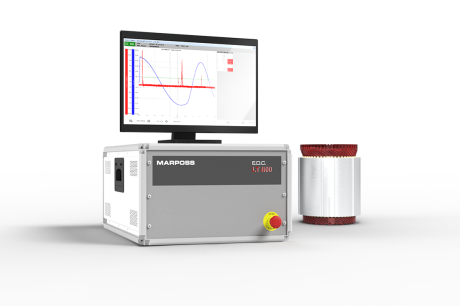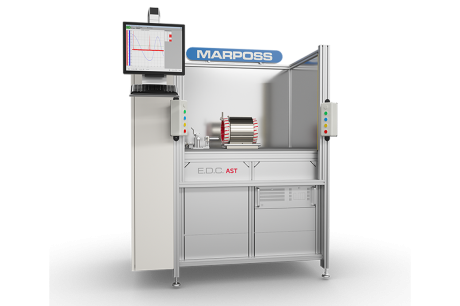Electrical tests: Partial Discharge Measurements for Insulation Quality
Quality control for stators, both in wound and hairpin versions, requires that various functional characteristics are checked along the entire production chain.
Before impregnation, the winding resistances, winding inductances and parasitic capacitances are checked, together with the insulation conditions.
After impregnation, the end-of-line test of the stator requires that the state of insulation is checked first, in order to control the impregnation process.
Marposs with the e.d.c. products provides a full range of testing electronics and applications, both manual and automatic, to carry out all the functional tests on stators that are typically required in the laboratory and on the production line.

The insulation tests on stators in the different stages of the process represent a key operation in assessing the quality and reliability of the component. The standard tests prescribed by the EN 60034-18-41, Insulation Resistance, Dielectric Strength (Hi-Pot), and Surge, allow to identify the presence of defects of such magnitude as to generate the immediate perforation of the dielectric with high energy discharges, but they are not able to provide assessments on the reliability of the component and its expected lifespan.
The Partial Discharge Insulation Test (PDIV test), on the other hand, is able to identify the presence of latent defects in the insulation between phases or with respect to the stator body, such as small damages on the insulating paper, scratches on the enamel of the wire or hairpin, defects on the phases insulation, and imperfect impregnation.

These defects are usually not able to generate an immediate loss of functionality of the component. However, they could trigger a failure over time, especially due to the voltage peaks typically generated by the use of electric motors in association with inverters, as foreseen for application in the automotive field for traction.
Although not yet prescribed by regulations, partial discharge tests are becoming a must for quality control on stators, wound rotors and complete e-motor assemblies, for use in the automotive sector. They are naturally recommended for all electric motors, even for non-automotive applications, for which a high level of quality and reliability has to be guaranteed.
The method developed by E.D.C. since 1998 for the partial discharge insulation tests is based on capacitive coupling technology. It is a more sophisticated technique, less sensitive to external noises and therefore more suitable for applications in the production area, compared to solutions with antenna normally available on the market.
The partial discharge test functions are proposed by E.D.C. within a complete line of products that integrate in the same device all the different electrical and functional testing options typically required for characterization in the design phase or for control in the production line.
To know more visit www.edcnet.eu
BROCHURES AND MANUALS
| Brochure | |
|---|---|
| English |
ELECTRIC MOTORS: (1.13MB)
|
| Japanese |
ELECTRIC MOTORS: (831.63kB)
|
| Korean |
ELECTRIC MOTORS: (2.72MB)
|
| Simplified Chinese |
ELECTRIC MOTORS: (5.01MB)
|


